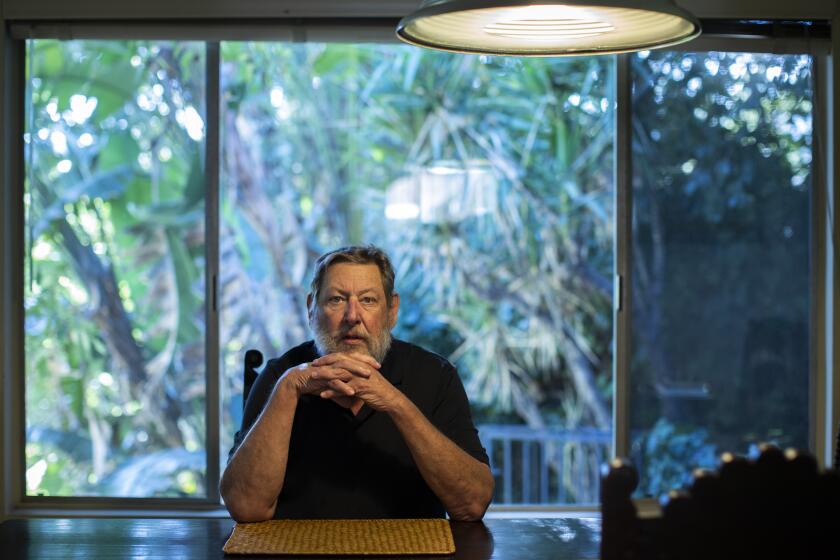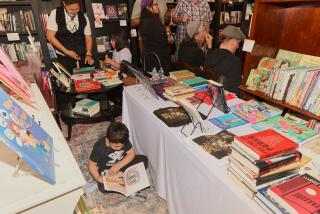New Yorkers scoffed. 10 years later, the Los Angeles Review of Books is a cultural force
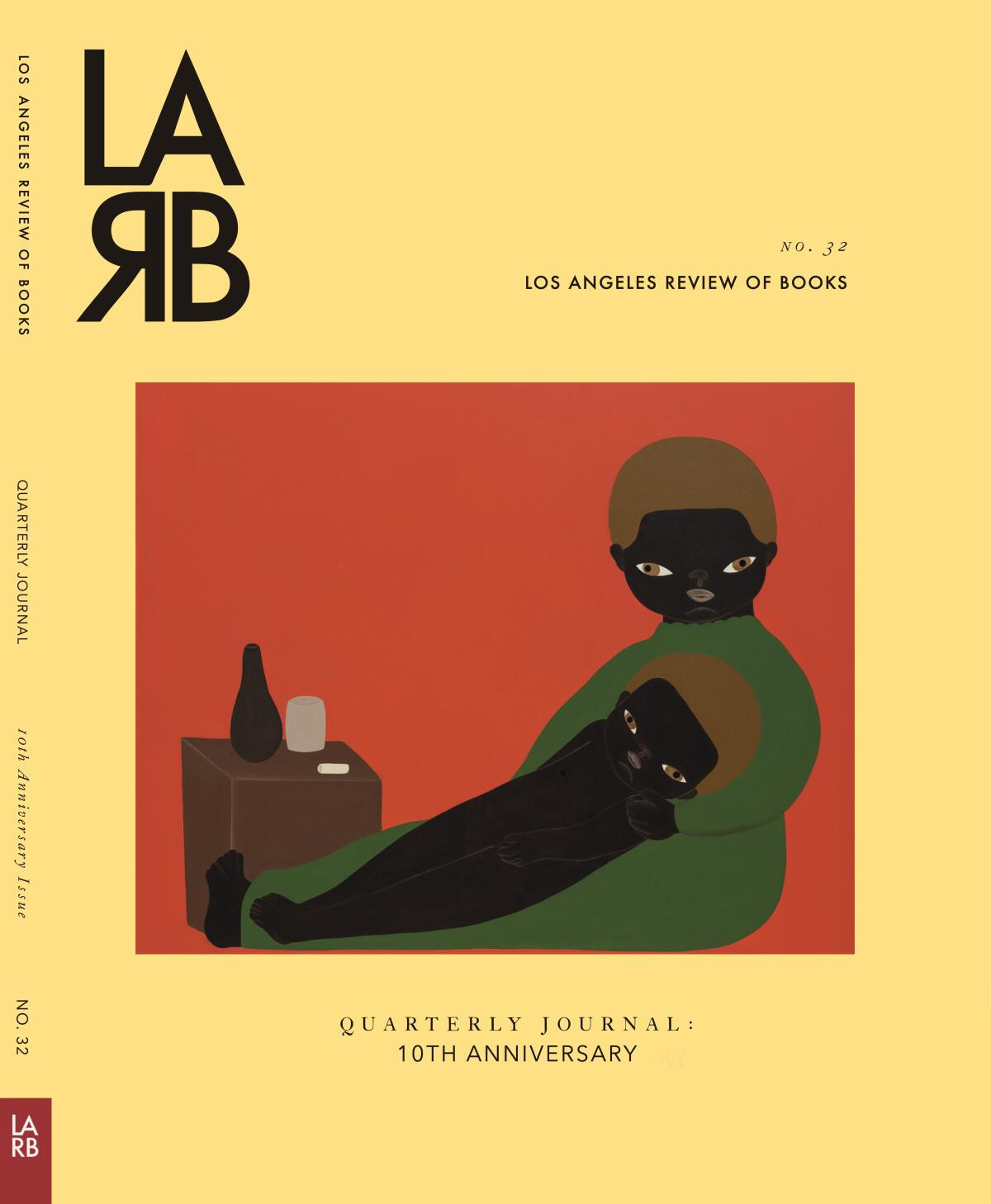
The Los Angeles Review of Books was conceived more than a decade ago during a dark period for the print literary ecosystem.
Tom Lutz, a writer and professor of creative writing at UC Riverside who began his career as a critic, was dismayed by the domino collapse of newspaper book reviews across the nation — robust, separate sections that had introduced him to literary culture back when he was a short-order cook and part-time student in Dubuque, Iowa. “What a shame,” he thought, “that future generations wouldn’t have that kind of access, and that authors wouldn’t have that kind of exposure.”
He decided to do something about it; he founded the LARB — a mostly online forum for critics and authors, both established and emerging, to sprawl and build out ideas — and secured funding from Hollywood players ranging from a Disney family member to “Mad Men” creator Matthew Weiner.
Ten years later, the mainstream media landscape has in many ways continued to wither as local papers fold at an accelerating pace and only one big. standalone newspaper book review survives in the U.S. At the same time, an undergrowth of journals and websites has begun to mature, exposed to sunlight that once shone only on the media sequoias. And the LARB, albeit still a scrappy upstart in comparison with namesakes in New York and London, is celebrating its 10th anniversary with a sense of pride and even vindication.
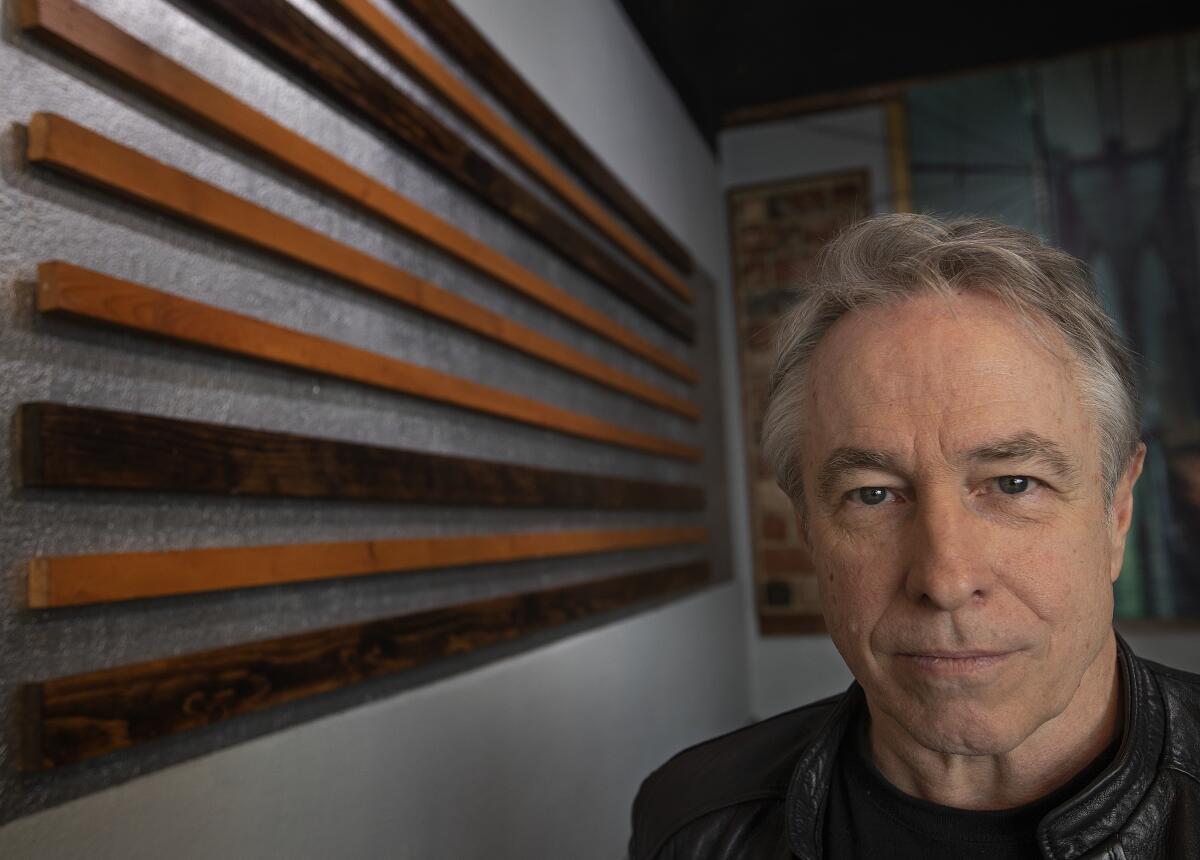
On Thursday evening, the multimedia organization — which oversees the online journal as well as “LARB Radio Hour,” the Publishing Workshop and numerous events — marked the milestone with a virtual birthday party hosted by Executive Director Irene Yoon and Editor in Chief Boris Dralyuk. Prominent authors including Margaret Atwood, Steph Cha, Victoria Chang, Dean Rader and Lynne Thompson offered readings and toasts.
The celebration was also a launch party for the anthology issue of Quarterly Journal, LARB’s Pushcart Prize-nominated print edition.
A self-described “cockeyed optimist,” Lutz admitted he underestimated the volume of work required to launch the publication — not to mention the costs of doing so, both financial and psychological.
“Some people scoffed in the New York publishing establishment, literally scoffed,” he said, “and we were energized by that kind of provinciality.”
And yet he also underestimated its potential. Inside his first makeshift office in his Silver Lake home, Lutz never envisioned it would become the cultural force that it has.
“We had hundreds of thousands of readers almost immediately,” he said in an email. “And it never occurred to me that almost 40% of our readers would live overseas or that we would approach and even surpass the readership of legacy publications.”
Looking back over the past decade, “I am grateful to have had the chance to help build something that has, through the efforts of many, many people, become such a vital force in the world of books,” Lutz said. “Books, after all, saved my life, and I am happy to have had a chance to say thank you in this way.”
With some 500,000 monthly pageviews, LARB has secured a place as one of the country’s leading cultural magazines, serving as a West Coast counterweight to the East Coast-centric book world and punching above that weight too — especially considering that all five of the major publishing houses are based in New York, along with the New York Review of Books, the New Yorker and the New York Times Book Review.
For more than 100 years, more than 90% of publishing in the United States was done in New York, said Albert Litewka, LARB’s board chairman and former president of Macmillan.
The author of “The Handmaid’s Tale” and “The Testaments” unpacks the way “all speculative fiction writers are writing about the present and the past.”
Los Angeles — despite its thriving cultural, artistic and academic institutions and no shortage of writers — lacked a hub for literary criticism.
It was exactly this glaring disparity that led Lutz and Litewka to conclude, as Litewka put it, “that it was time for a new publication with a different orientation coming from a different place. And it turned out to be a brilliant idea at the right time.”
For the record:
10:07 a.m. Dec. 14, 2021An earlier version of this story identified the wrong Susan Morse; she’s the artist and architect Susan Morse, not the film editor.
The result is a journal that gives critics room to breathe, to develop arguments about culture high and low in the space afforded by the internet, without many of the print burdens that afflict similarly thick reviews like the New York Review of Books, the London Review of Books and Bookforum. Helping the LARB in that mission are funders such as artist and architect Susan Morse, CalArts board Chairman Timothy Disney and director-producer Bill Benenson. In 2019, the organization brought in at least $908,880, $673,630 of it from grants and contributions, according to 2020 tax forms.
LARB has published more than 5,000 reviews, essays, interviews and articles across some 40 different fields — from architecture and fiction to politics, film and history. It has also produced more than 500 multimedia pieces and hosted readings and other events across the city. “LARB Radio Hour” airs weekly on KPFK; an anniversary-pegged virtual literary festival, “Semipublic Intellectual Sessions,” concluded last month in collaboration with institutions like the Thomas Mann House.
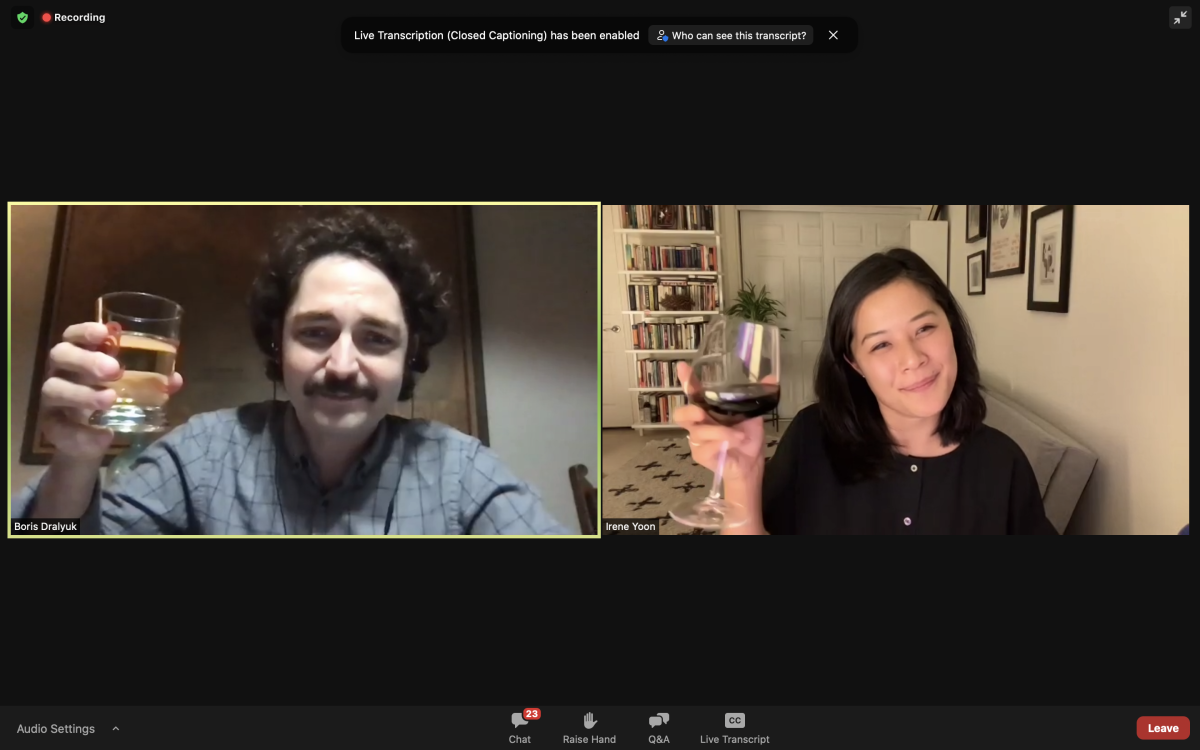
Five years ago, the organization launched the LARB Publishing Workshop, a fellowship training program for students interested in book and magazine production. This year’s summer virtual program featured training and speeches from industry professionals from such institutions as Riverhead, Catapult and the New York Times Magazine.
For Yoon, the workshop is at the heart of LARB’s work.
“There’s this real emphasis on creating a creative space for people from all backgrounds to come and do really great work and to nurture that,” she said. “And it’s about making publishing and literary arts and great ideas and writing accessible to folks for whom it might not always be the case, because publishing is historically so difficult to break into.”
The nonprofit has helped launch careers even while publishing many writers at their creative peak; contributors have included Hanif Abdurraqib, Mike Davis, Myriam Gurba, Roxane Gay, Juan Felipe Herrera, Viet Thanh Nguyen, Amanda Gorman, Leslie Jamison, Carmen Maria Machado, Don Mee Choi, Maggie Nelson and the late Jonathan Gold.
Sampling chiles and rosé with an author whose influence in L.A. far exceeds his fame — though new novel “Shaky Town” might change that.
It’s the combination of discovering new writers and working with masters that Dralyuk considers to be the most exciting part of his job.
“That thrill never fades. It continues to excite me how many people learn of our existence every day, how many writers reach out to us to share their work,” he said. “The ability to draw talent, elevate talent, elevate new voices, fresh voices, those are points of pride.”
But at its core, LARB’s mission is to make incisive writing accessible (its online content is free), to weed out the snobbery native to some of its East Coast forebears and to showcase L.A. as a cultural capital flourishing beyond Hollywood.
“We are a city of immigrants, a global city, a city that produces exciting literature in a variety of languages, and we see ourselves as a mirror of that creative potential,” said Dralyuk.
“We want to bring Los Angeles and its culture to the world and bring global culture to Los Angeles — to act as a kind of hub for the city’s literary scene” not as a singular entity, “but as part of this growing constellation of cultural institutions,” he continued.
As for the organization’s next 10 years, Litewka envisions a future very much like the present but with more activity and, if resources allow, more coverage of books from other countries and languages. “We hope to grow our readership and increase our fundraising as the years progress,” he said, “but we do not anticipate a dramatic increase in revenues.”
If they’re to get there, he knows the future must be approached carefully and strategically “in order to remain viable.”
“A lot of publications have come and gone even in these 10 years,” he lamented. “We’ve come, but we’re not going.”
On Thursday night, readers and contributors from Riverside, San Diego, Portland and as far away as Chicago, New York and Guadalajara, Mexico, tuned in to the anniversary celebration.
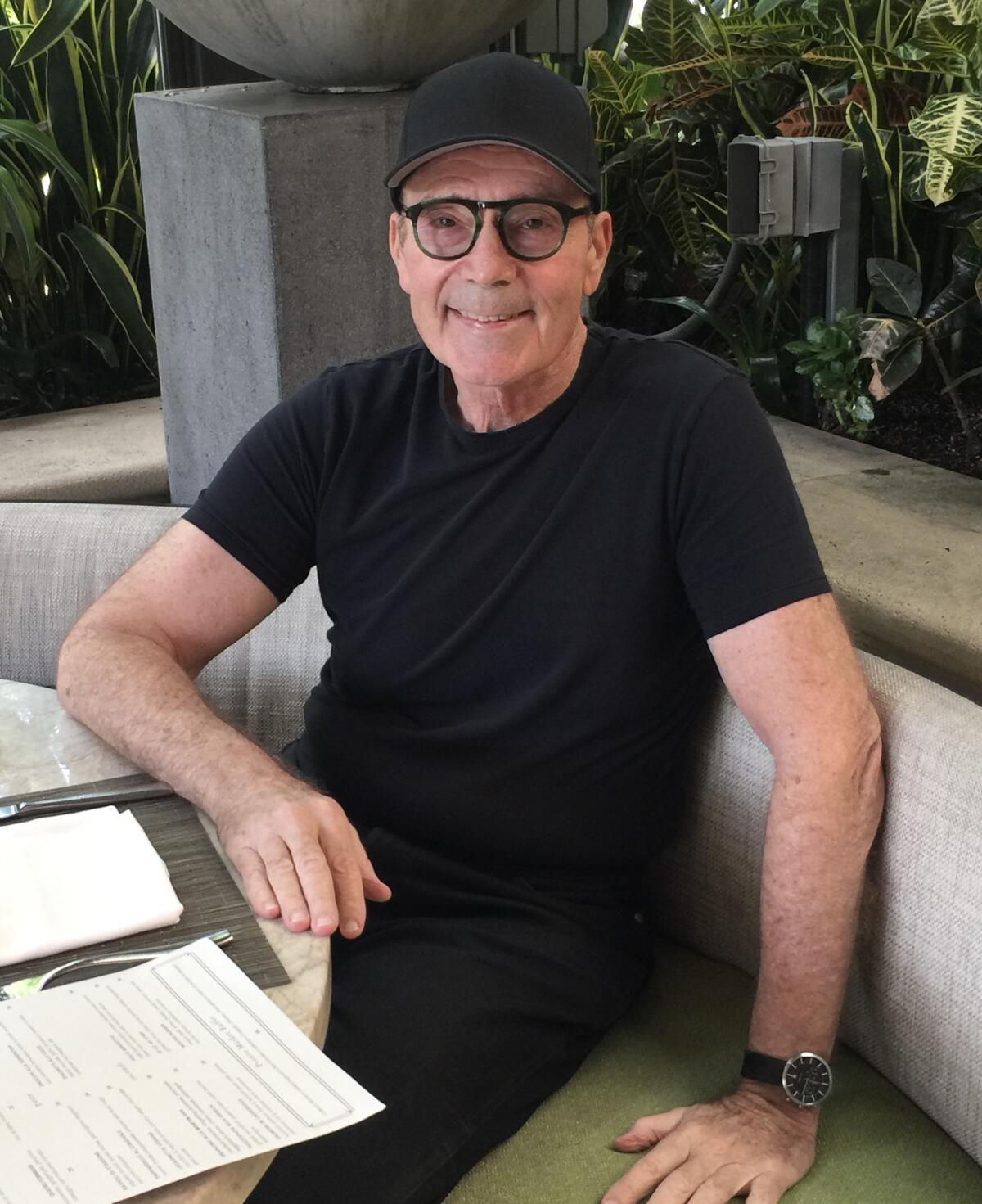
Virtual toasts were given with wine, sparkling water and other beverages and no shortage of tipsy smiles.
LARB “is the impossible dream,” said Janet Fitch, author of “White Oleander,” raising a glass. “It’s the little engine that could. Whenever I have something that I really want to say and I want to be able to follow it through the twists and turns. … I think of LARB first as a place for such a conversation.”
Quentin Ring, executive director of Beyond Baroque Literary Arts Center in Venice, said: “Happy birthday to the Los Angeles Review of Books ... we just have so much love and gratitude for all that you’ve done for literary L.A. for the past 10 years.”
Atwood, author of “The Handmaid’s Tale” and other dystopian novels, said: “In a time when so many people seem to be shouting, we really need publications like yours in which people are thinking thoughtfully and with consideration.”
And Lutz, beaming in from the hills of Sicily in a prerecorded video message, wished the next generation of LARB the best. “Congratulations, and Godspeed as you start the second 10 years.”
More to Read
Sign up for our Book Club newsletter
Get the latest news, events and more from the Los Angeles Times Book Club, and help us get L.A. reading and talking.
You may occasionally receive promotional content from the Los Angeles Times.
